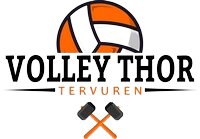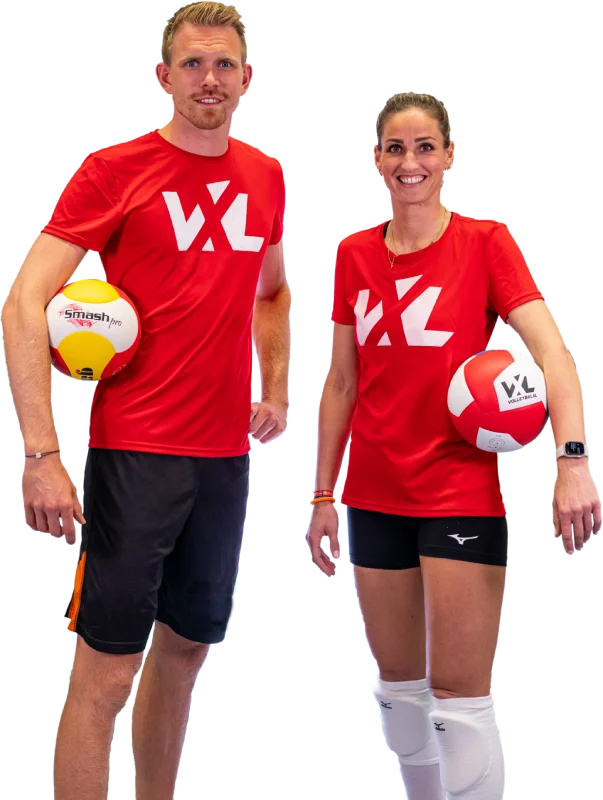Desafortunadamente, este ejercicio solo es visible para los miembros.
Hazte miembro de VolleyballXL y obtén acceso a este ejercicio.
Los miembros tienen acceso a muchos extras:
- Más de 650 ejercicios en vídeo
- Entrenamientos completos
- Crea entrenamientos con nuestros ejercicios.
- Generador de entrenamientos
- Vídeos de la academia

En VolleybalXL encuentro mucha inspiración para los entrenamientos que doy cada semana. Cada vez más entrenadores dentro de la asociación están entusiasmados con VolleybalXL. El sitio web es fácil de usar y...Seguir leyendo
En VolleybalXL encuentro mucha inspiración para los entrenamientos que doy cada semana. Cada vez más entrenadores dentro de la asociación están entusiasmados con VolleybalXL. El sitio web es fácil de usar y, al filtrar, obtienes rápidamente los ejercicios que estás buscando dentro de la amplia gama de ejercicios. Luego puedes procesar fácilmente esto en un curso de entrenamiento con todas las herramientas dentro del sitio web.
Sebastiaan Lamain
Un sitio muy bueno y estructurado. Muchas ayudas para el entrenamiento y además con videos para todas las formas de ejercicios, lo que ayuda a obtener ideas y a entrenar.Seguir leyendo
Un sitio muy bien estructurado. Muchas ayudas para el entrenamiento y además con videos para todas las formas de ejercicios, lo que ayuda a obtener ideas y entrenar. También la función de tener una sesión de entrenamiento completa con un objetivo deseado es un gran elogio para VolleyballXL.
Waldemar Kröker
Para nuestro club, nos inscribimos en la suscripción premium después de recibir un excelente y rápido soporte por correo electrónico. Es genial tener a alguien que se encarga de nuestras preguntas y las responde de manera rápida y cooperativa...Seguir leyendo
Para nuestro club, nos inscribimos en la suscripción premium después de recibir un excelente y rápido soporte por correo electrónico. Es genial tener a alguien que se encarga de nuestras preguntas y las responde de manera rápida y cooperativa. ¡Nuestros entrenadores juveniles ahora pueden empezar por completo!
Marleen SpieringsCito

Nuestro club ha contratado una suscripción a VolleyballXL para todos sus entrenadores de jóvenes y adultos. Esto permite que nuestros entrenadores reúnan fácilmente ideas para ejercicios y sesiones de entrenamiento, con explicaciones...Seguir leyendo
Nuestro club ha contratado una suscripción a VolleyballXL para todos sus entrenadores de jóvenes y adultos. Esto permite que nuestros entrenadores reúnan fácilmente ideas para ejercicios y sesiones de entrenamiento, con explicaciones y posibles extensiones, gracias a un menú inteligente (nivel, número de jugadores, objetivo de entrenamiento, qué técnica). ¡Todos los ejercicios se presentan en un video claro!
Berry SchuursInterruptor

¡Realmente increíble! El generador es asombroso, los ejercicios están bien explicados con los videos. El mejor sitio web o aplicación que he utilizado. No duden en publicarlo como una aplicación. El entrenamiento se puede adaptar perfectamente...Seguir leyendo
¡Realmente increíble! El generador es asombroso, los ejercicios están bien explicados con los videos. El mejor sitio web o aplicación que he utilizado. No duden en publicarlo como una aplicación. El entrenamiento se puede adaptar perfectamente a tus necesidades y circunstancias. Un verdadero ahorro de tiempo, perfecto.
André Skala
¡VolleyballXL es fácil de usar! Conveniente para los entrenadores que no quieren perder demasiado tiempo creando sesiones de entrenamiento.
Roald BartholomeesVolley Thor


